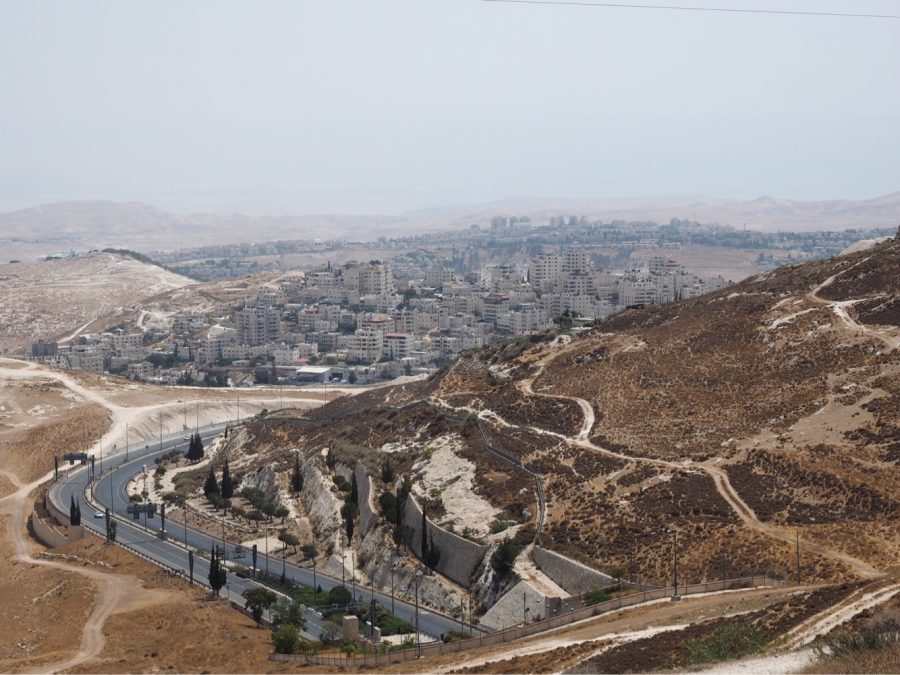Concern over Israeli-Palestinian violence reaches WHS
Photo Hanna Zakharenko
A view of Bethlehem from Palestinian territory.
Over the past 70 years, there have been constant disputes between Israel and Palestine over land claims. Last week was no exception.
Since March 30, the Israeli army has killed 113 and injured more than 12,000 Palestinians during the Great March of Return in Gaza. The march represents the Palestinians’ desire to return to the land that they consider home and end the blockade on Gaza. The protestors were met with live ammunition, tear gas and firebombs as they assembled at several points along the Israeli border. Last week, 64 Palestinians alone were killed at the border.
This issue has made its way to the Westfield community. Having studied international relations as a member of the award-winning Model United Nations (MUN) club at WHS, junior Meghan Johnson said, “I’ve read information on the news about it—CNN, BBC. For MUN we actually did a debate about the issue between the two countries.”
On top of that, teachers are looking to take this issue to the classroom. History Teacher Mr. Brett Curtis said, “I hope to do a class discussion in my US II class on the matter soon.”
With the recent move of the U.S. embassy from Tel Aviv to Jerusalem on May 16, the violence on the Israeli-Palestinian border increased as Gaza suffered its deadliest days since the start of the Great March of Return.
When asked if he thought that moving the U.S. embassy to Jerusalem would increase the violence along the border, Curtis said, “The moving of the embassy has been in the works for a long time, so I think it is a culmination of the frustrations of Palestinians and the Arab world on the subject. Moving the embassy there seems to be a blow for areas of Jerusalem being part of a future Palestinian state, which they claim it should be.”
Tali Golergant, a junior at the International School of Luxembourg, grew up in Israel. “I know that the situation of missiles and deaths is on both sides and I want it all to stop,” she wrote in a text. “However, the extremists’ goal is to have Israel wiped out and with this in their minds, it is hard to make peace.”
The solution to the conflict is unknown, but many people have strong opinions regarding what the U.S. should do in order to help the situation. “I feel that if the U.S. stopped aiding Israel by giving them weapons and funds, it would help,” WHS junior Stephanie Xiao said.
The million-dollar question, of course, is whether peace can ever be achieved between Israel and Palestine. “You would like to hope so, but history has shown us the opposite,” Curtis said. “There is a really deep dislike and distrust that has developed between the two sides for so long. It’s hard to see compromise and negotiations in the near future.”

